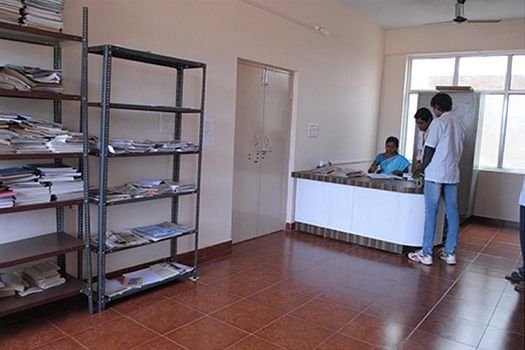Karnataka 2nd PUC Syllabus 2024-25: Download Reduced 2nd PUC Syllabus 2024-25 Here

Department of Pre-University, Karnataka has released the reduced Karnataka 2nd PUC syllabus 2024-25 for PCMB, Economics, Business Studies, and Accountancy subjects. The syllabus for 2024 has been made available in PDF file format. Students can download the 2nd PUC syllabus 2024-25 from the official webpage for board exam preparation.
Moreover, the candidates are advised to strictly adhere to the Karnataka 2nd PUC 2024-25 syllabus provided by the board for Karnataka 2nd PUC exam preparation.
Read more: Karnataka 2nd PUC Blueprint 2024
| Karnataka 2nd PUC Results 2024 | Karnataka 2nd PUC Time Table 2024 |
| Karnataka 2nd PUC Supplementary Exam 2024 | Karnataka 2nd PUC Model Papers 2024 |
Table of Contents:
- Karnataka 2nd PUC Reduced Syllabus 2024-25
- Karnataka 2nd PUC 2024-25 Syllabus for Maths
- Karnataka 2nd PUC Syllabus for Electronics
- Karnataka 2nd PUC Syllabus for Geology
- Karnataka Physics 2nd PUC Syllabus 2024-25
- Karnataka 2nd PUC Syllabus 2024-25 for English
- Karnataka 2nd PUC Syllabus 2024-25 for Economics
- Karnataka 2nd PUC Syllabus 2024-25 for Business Studies
- Karnataka 2nd PUC Accounting Syllabus
- Karnataka 2nd PUC Exam 2024 Distribution of Marks
Karnataka 2nd PUC Reduced Syllabus 2024-25
The board has reduced the syllabus for various subjects for the academic year 2024-25. Students must use these reduced syllabus to strategize their plans accordingly. Moreover, the reduced syllabus link is provided below for the student's reference.
| Particulars | PDF Link |
| Karnataka 2nd PUC Reduced Syllabus 2024-25 | Download Now |
Karnataka 2nd PUC 2024-25 Syllabus for Maths
The 2nd PUC syllabus 2024 for KSEEB class 12 Maths was reduced for the academic year 2024-25. There are 15 units in all, and some of the topics include Matrices and Determinants, Permutations and Combinations, Probability, Binomial Theorem, Partial Fractions, etc. Find the detailed Karnataka 2nd PUC syllabus 2024-25 below.
| Unit | Unit Name |
| 1 | Matrices and Determinants |
| 2 | Permutations and Combinations |
| 3 | Probability |
| 4 | Binomial Theorem |
| 5 | Partial Fractions |
| 6 | Mathematical Logic |
| 7 | Ratio and Proportions |
| 8 | Bill Discounting |
| 9 | Stocks and Shares |
| 10 | Learning Curve |
| 11 | Linear Programming Problems |
| 12 | Sale Tax and Value Added Tax |
| 13 | Heights and Distances |
| 14 | Compound Angles, Multiple Angles, Sub Multiple Angles, and Transformation Formulae |
| 15 | Circles (Points of Intersection of Line & Circle) |
Karnataka 2nd PUC Syllabus for Electronics
Some topics in Electronics include Transistor Amplifiers, Oscillators, Feedback in Amplifiers, Transistor Amplifiers, etc. Students can check the 2nd PUC syllabus 2024-25 for Electronics given below:
| Unit | Unit Name |
| 1 | Field Effect Transistor |
| 2 | Bipolar Junction Transistor (BJT) Biasing |
| 3 | Transistor Amplifiers |
| 4 | Feedback in Amplifiers |
| 5 | Operational Amplifier |
| 6 | Oscillators |
| 7 | Wireless Communication |
| 8 | Modulation and Demodulation |
| 9 | Digital Electronics |
Karnataka 2nd PUC Syllabus for Geology
The Karnataka 2nd PUC syllabus 2024-25 for Geology consists of 7 units. Students must check these different sets of units and study accordingly. Some important topics include Igneous Rocks, Sedimentary Rocks, Metamorphic Rocks, Structural Geology, Stratigraphy, etc.
| Unit | Unit Name |
| 1 | Introduction |
| 2 | Igneous Rocks |
| 3 | Sedimentary Rocks |
| 4 | Metamorphic Rocks |
| 5 | Structural Geology |
| 6 | Stratigraphy |
| 7 | Paleontology |
Karnataka Physics 2nd PUC Syllabus 2024-25
The given physics syllabus consists of 13 units with very detailed topics and sub-topics. Some of the units include chapters like Electric charges and fields, Current Electricity, Moving charges and magnetism, etc. Please go through the 2nd PUC syllabus for Physics given below and study accordingly.
| Unit Number and Name | Unit Name |
| 1. Electric charges and fields | Introduction Electric Charge, Conductors and Insulators, Charging by Induction, Basic Properties of Electric Charge, Coulomb’s Law, Forces between Multiple Charges, Electric Field, Electric Field Lines, Electric Flux, Electric Dipole, Dipole in a Uniform External Field, Continuous Charge Distribution, Gauss’s Law, Applications of Gauss’s Law, Field due to infinitely long straight uniformly charged wire, Field due to uniformly charged infinite plane sheet. |
| 2. Electrostatic Potential and Capacitance | Introduction, Electrostatic Potential, Potential due to a Point Charge, Potential due to an Electric Dipole, Potential due to a System of Charges, Equipotential Surfaces, Potential Energy of a System of Charges, Potential Energy in an External Field, Electrostatics of Conductors, Dielectrics and Polarisation, Capacitors and Capacitance, The Parallel Plate Capacitor, Effect of Dielectric on Capacitance, Combination of Capacitors, Energy Stored in a Capacitor |
| 3. Current Electricity | Introduction, Electric Current, Electric Currents in Conductors, Ohm’s law3.5 Drift of Electrons and the Origin of Resistivity, Limitations of Ohm’s Law, Temperature Dependence of Resistivity, Electrical Energy, Power, Cells, emf, Internal Resistance, Cells in Series and Parallel, Kirchhoff’s Rules, Wheatstone Bridge, Meter Bridge, Potentiometer |
| 4. Moving Charges and Magnetism | Introduction, Magnetic Force, Motion in a Magnetic Field, Motion in Combined Electric and Magnetic Fields, velocity selector, Magnetic Field due to a Current Element, Biot-Savart Law, Magnetic Field on the Axis of a Circular Current Loop, Ampere’s Circuital Law, The Solenoid and the Toroid, Force between Two Parallel Currents, the Ampere, Torque on Current Loop, Magnetic Dipole, The Moving Coil Galvanometer |
| 5. Magnetism and Matter | Introduction, The Bar Magnet, The magnetic field lines, Magnetism and Gauss’s Law, The Earth’s Magnetism, Magnetisation and magnetic intensity |
| 6. Electronic Induction | Introduction, The Experiments of Faraday and Henry, Magnetic Flux6.4 Faraday’s Law of Induction, Lenz’s Law and Conservation of Energy, Motional Electromotive Force, Energy Consideration: A Quantitative Study, Eddy Currents, Inductance, AC Generator |
| 7. Alternating Current | Introduction, AC Voltage Applied to a Resistor, Representation of AC Current and Voltage by Rotating Vectors - Phasors, AC Voltage Applied to an Inductor, AC Voltage Applied to a Capacitor, AC Voltage Applied to a Series LCR Circuit, LC Oscillations, Transformers |
| 8. Electromagnetic Waves | Introduction, Electromagnetic Waves, Electromagnetic Spectrum |
| 9. Ray Optics and Optical Instruments | Introduction, Refraction, Total Internal Reflection, Refraction at Spherical Surfaces and by Lenses, Refraction through a Prism, Some Natural Phenomena due to Sunlight, the rainbow, Optical Instruments (except resolving power microscope and astronomical telescope) |
| 10. Wave Optics | Introduction, Huygens Principle, Refraction and Reflection of Plane Waves using Huygens Principle, Coherent and Incoherent Addition of Waves |
| 11. Dual Nature of radiation and matter | Introduction, Electron Emission, Photoelectric Effect, Experimental Study of Photoelectric Effect, Photoelectric Effect and Wave Theory of Light, Einstein’s Photoelectric Equation: Energy Quantum of Radiation, Particle Nature of Light: The Photon, Wave Nature of Matter |
| 12. Atoms | Introduction Experiment, Alpha particle Scattering and Rutherford’s Nuclear Model of Atom, Atomic Spectra, Bohr Model of the Hydrogen Atom, The Line Spectra of the Hydrogen Atom, De Broglie’s Explanation of Bohr’s Secon d Postulate of Quantisation |
| 12. Nuclei | Introduction, Atomic Masses and Composition of Nucleus, Size of the Nucleus, Mass Energy and Nuclear Binding Energy (except binding energy per nucleon and its variation with the mass number), Nuclear Force, Nuclear Energy |
| 13. Semiconductor Electronics: Materials, Devices and Simple Circuits | Introduction, Classification of Metals, Conductors and Semiconductors, Intrinsic Semiconductor, Extrinsic Semiconductor |
Karnataka Chemistry 2nd PUC Syllabus 2024-25
There are 11 units in the Karanataka 2nd PUC syllabus 2024-25, and there are various sub-topics under these units. Find below the syllabus for Chemistry. The www.pue.kar.nic.in syllabus for Chemistry includes units like Solid-state, Solutions, Electrochemistry, Chemical Kinetics, Surface Chemistry, etc.
| Unit Number and Name | Topics |
| 1. Solid-state | General Characteristics of Solid State, Amorphous and Crystalline Solids, Classification of Crystalline Solids, Crystal Lattices and Unit Cells, Number of Atoms in a Unit Cell, Close Packed Structures, Packing Efficiency, Calculations Involving Unit Cell Dimensions, Imperfections in Solids |
| 2. Solutions | Types of Solutions, Expressing Concentration of Solutions, Solubility, Vapour Pressure of Liquid Solutions, Ideal and Non-ideal Solutions, Colligative Properties and Determination of Molar Mass |
| 3. Electrochemistry | Electrochemical Cells, Nernst Equation, Conductance of Electrolytic Solutions, Electrolytic cells and Electrolysis (excluding the elementary idea of laws of electrolysis |
| 4. Chemical Kinetics | Rate of a Chemical Reaction, Factors Influencing Rate of a Reaction, Integrated Rate Equations |
| 5. Surface Chemistry |
Adsorption, Colloids, Classification of Colloids, Colloids Around Us |
| 6. General Principles and Processes of Isolation of Elements | Nil |
| 7. p-block elements | Group 15 Elements, Dinitrogen, Ammonia, Oxides of Nitrogen (excluding structure), Nitric Acid, Group 16 Elements, Dioxygen, Simple Oxides, Ozone, Sulphur – Allotropic Forms, Sulphur Dioxide, Oxoacids of Sulphur, Sulphuric Acid; chemical Properties use, Group 17 Elements, Chlorine, Hydrogen Chloride, Oxoacids of Halogens, Interhalogen Compounds, Group 18 Elements |
| 8. d and f Block Elements | Position in the Periodic Table, Electronic Configurations of the d-Block Elements, General Properties of the Transition, Elements (d-Block), The Lanthanoids: Electronic configuration, oxidation states, Llanthanoids contraction, reasons and consequences, The Actinoids; Actinoid contraction, Some Applications of d- and f-Block Elements |
| 9. Coordination Compounds | Werner's Theory of Coordination Compounds, Definitions of Some Important Terms Pertaining to Coordination Compounds, Nomenclature of Coordination Compounds, Bonding in Coordination Compounds, Bonding in Metal Carbonyls, Stability of coordination compounds |
| 10. Haloalkanes and Haloarenes | Classification, Nomenclature, Nature of C–X Bond, Methods of Preparation, Physical Properties, Chemical Reactions |
| 11. Alcohols, Phenols and Ethers | Classification, Nomenclature, Structures of Functional Groups, Alcohols and Phenols, Ethers |
Karnataka 2nd PUC Syllabus 2024-25 for English
Given below is the Karnataka 2nd PUC syllabus 2024-25 for English. There are 13 units in the English syllabus. The topics are mentioned in the table below for reference purposes:
| Unit | Unit Name |
| 1 | Romeo and Juliet |
| 2 | Too Dear |
| 3 | On Children |
| 5 | A Sunny Morning |
| 6 | When You Are Old |
| 7 | The Gardener |
| 10 | Heaven, If You Are Not Earth |
| 11 | Japan And Brazil Through A Traveler's Eye |
| 12 | The Voter |
| 13 | Where There Is A Wheel |
Karnataka 2nd PUC Syllabus 2024-25 for Economics
Economics is divided into Microeconomics and Macroeconomics. Check the 2nd PUC syllabus for Economics which is mentioned below.
| Unit | Unit Name |
| Part I - Microeconomics | |
| 1 | Introduction |
| 2 | Theory of Consumer Behavior |
| 3 | Production and Cost |
| 4 | Theory of the Firm under Perfect Competition |
| Part II - Macroeconomics | |
| 1 | Introduction |
| 2 | National Income Accounting |
| 3 | Money and Banking |
| 4 | Determination of Income and Employment |
Karnataka 2nd PUC Syllabus 2024-25 for Business Studies
Business studies consist of parts 1 and part 2. Please go through both the parts and know the topics well. Some important topics of Karnataka 2nd PUC syllabus 2024-25 for business studies include Principles of Management, Business Environment, Organising, Controlling, Staffing, Financial Management, etc.
| Unit | Unit Name |
| Part I | |
| 1 | Nature and Significance of Management |
| 2 | Principles of Management |
| 3 | Business Environment |
| 4 | Planning |
| 5 | Organising |
| 6 | Staffing |
| 7 | Directing |
| 8 | Controlling |
| Part II | |
| 9 | Financial Management |
Karnataka Accounting 2nd PUC Syllabus 2024-25
Kindly check the PUC board Karnataka syllabus for accounting. There are two parts to the Accounting syllabus. The parts and the units under them are mentioned in the table below. Some topics include Accounting for Not-for-Profit Organisation, Accounting for Partnership: Basic Concepts, Reconstitution of a Partnership Firm - Retirement/Death of a Partner, Dissolution of Partnership Firm, Financial Statement of Company, etc.
| Unit | Unit Name |
| Part I | |
| 1 | Accounting for Not-for-Profit Organisation |
| 2 | Accounting for Partnership: Basic Concepts |
| 3 | Reconstitution of a Partnership Firm - Admission of a Partner |
| 4 | Reconstitution of a Partnership Firm - Retirement/Death of a Partner |
| 5 | Dissolution of Partnership Firm |
| Part II | |
| 1 | Accounting for Share Capital |
| 3 | Financial Statement of Company |
Karnataka 2nd PUC Exam 2024 Distribution of Marks
You can find details about the distribution of marks for the Karnataka 2nd PUC exam 2024 in the table below.
| Paper | Total Time | Total Marks |
|---|---|---|
| Language Paper Kannada, English, Hindi, Sanskrit, Telugu, Tamil, Marathi, and Urdu | 180 minutes | Theory: 100 Marks. No Internal marks |
| Maths | 3 hours | Theory: 80 Marks; Internal: 20 Marks |
| Language Paper III- Hindi, Kannada, English, Arabic, Urdu, Sanskrit, Konkani, and Tulu | 3 hours | Theory will be of 80 Marks while Internal 20 Marks |
| Science | 3 hours | Theory: 80 Marks; Internal: 20 Marks |
| Social Science | 3 hours | Theory: 80 Marks; Internal: 20 Marks |
| Language Paper-II- Kannada, English | 3 hours | Theory will of 80 Marks, while Internal will be of 20 Marks |
FAQs
What is the total mark allotted for Karnataka 2nd PUC theory exam as per the Karnataka 2nd PUC syllabus 2023-24?
From where can I download the Karnataka 2nd PUC syllabus?
When will the board release the revised Karnataka 2nd PUC syllabus 2023-24?
What type of questions can students expect in their Karnataka 2nd PUC exam?
How long does it take to cover Karnataka 2nd PUC syllabus?
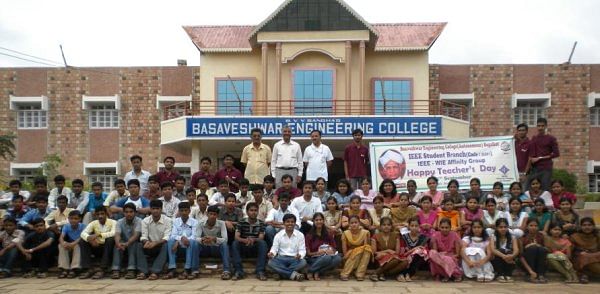


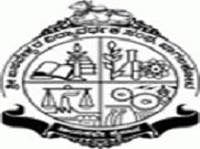
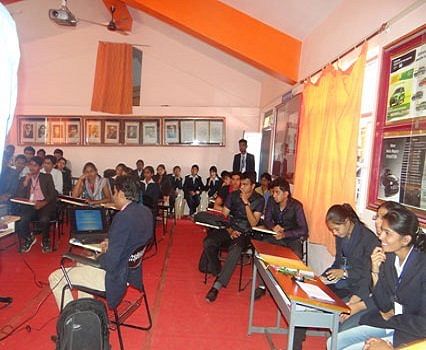

![Shri Basaveshwara Vidya Vardhak Sangha Ayurvedic Medical College, [SBVVSAMC] Bagalkot](https://media.getmyuni.com/azure/college-image/small/shri-basaveshwara-vidya-vardhak-sangha-ayurvedic-medical-college-sbvvsamc-bagalkot.jpg)
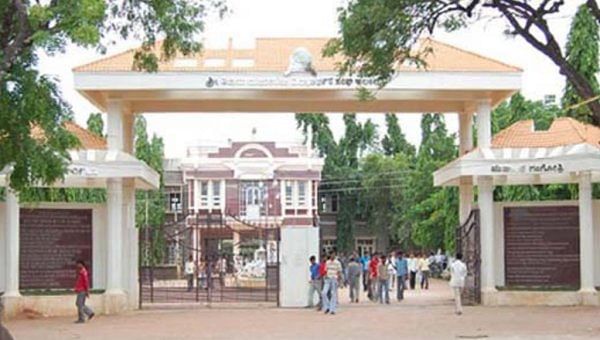
![Shri Vijay Mahantesh Vidya Vardhak Sangha Ayurvedic Medical College, [SVMVVSAMC] Bagalkot](https://media.getmyuni.com/azure/college-image/small/shri-vijay-mahantesh-vidya-vardhak-sangha-ayurvedic-medical-college-svmvvsamc-bagalkot.jpg)
